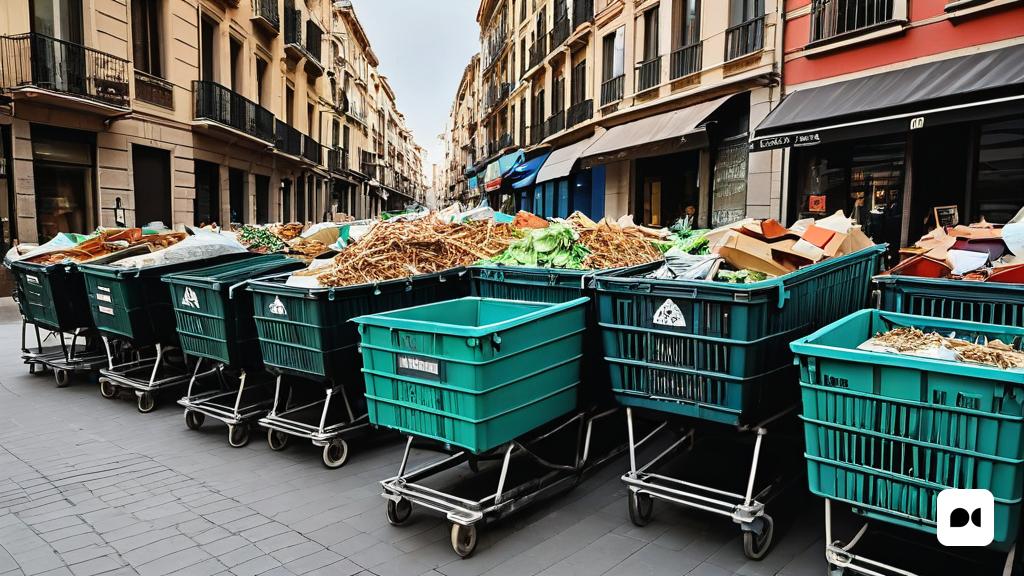A Look at Informal Recyclers
On the streets of Barcelona, you can see informal recyclers, who often use supermarket carts to collect metals from containers and debris. This group, which is estimated at around three thousand two hundred people, is dedicated to mainly collecting iron, aluminum, copper and steel and then selling it to metal recycling companies.
A study carried out by the University of Barcelona has revealed that these informal recyclers, mostly men of sub-Saharan origin, face precarious working conditions, with monthly income that barely reaches 500 euros, representing only 40% of the minimum wage. Despite working approximately sixty hours a week, half of them live in shared apartments, while the rest lack housing and labor protection.
Demographic Portrait and Working Conditions
The study reveals that the vast majority of informal recyclers are men, mostly recent immigrants, and around 63% are under forty years old. The origin of this group is mostly from Africa, mainly from Senegal, followed by Romania, Latin America and Asia. In addition, approximately 78% lack a foreigner identity number (NIE). According to researchers, for many of them, scrap metal collection represents a survival strategy in the face of the impossibility of accessing the formal labor market due to lack of documentation.
Impact on Metal Recycling
Informal recyclers play a significant role in metal recycling in the city. According to the study, each recycler collects around 118 kilograms of metal per day, which adds up to about 380 tons per day and more than 100,000 tons per year in Barcelona. In addition, they maintain frequent interactions with neighbors and construction workers, contributing significantly to metal recycling in the city.
Public Perception and Citizen Collaboration
The study highlights that public perception of informal recyclers is mostly positive, with a high percentage of households considering that they contribute to sustainability. Furthermore, many citizens show a willingness to collaborate with this group, either by providing them with reusable and recyclable objects, or by supporting actions such as hiring by the City Council.
Conclusions and Future Research
The Wastecare research project, carried out by the University of Barcelona, has provided a valuable social portrait of informal recyclers in Barcelona. The researchers plan to continue this line of research with the European project Circular-based innovations for sustainable and inclusive urban transitions, with the aim of deepening the study of this group and its impact on the city.

